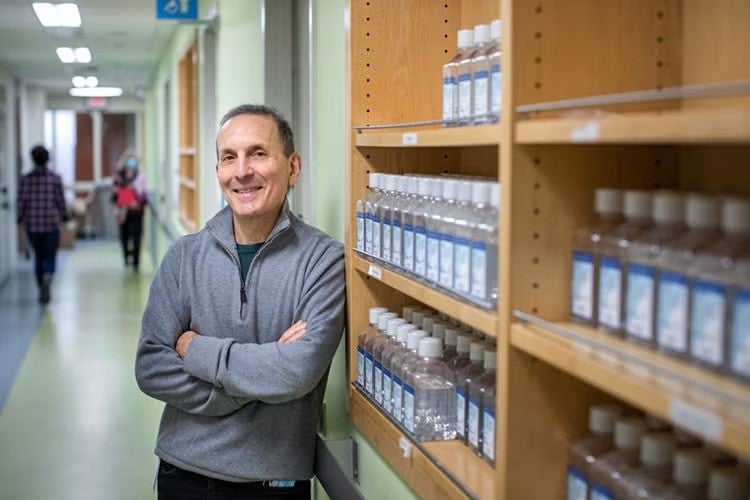
Professor Molly Shoichet receives Connaught Innovation Award
Published: March 10, 2020
University Professor Molly Shoichet of the department of chemical engineering and applied chemistry and IBBME at the Faculty of Applied Science & Engineering and the Donnelly Centre for Cellular & Biomolecular Research has received a Connaught Innovation Award for developing a biomimicking substance that better treats retinal detachment.
Shoichet's team, led by postdoctoral fellow Alexander Baker, has invented a biodegradable material that mimics the properties of vitreous, the gel-like substance that fills 75 per cent of the eye, helping to maintain its round shape.
As people age, the consistency of the vitreous, which adheres to the retina, changes. This can lead to the vitreous peeling off and tugging on the retina, creating a tear. Left untreated, the gel substance could leak through the tear and into the space behind the retina, causing detachment and blindness. Current treatment involves inserting a gas bubble into the eye to keep the retina flat. Following the procedure, patients must lie face-down to maintain head position for several days, which is known as posturing. For complicated detachments, silicone oils are used to repair the detachment.
“Our vitreous replacement hydrogel will neither blur patient vision nor require posturing or a second surgery, as required with oils,” says Shoichet, who is collaborating with vitreoretinal surgeon, Dr. Robert Devenyi.
The Connaught Innovation Award funding will help advance the work of Shoichet’s vitreous substitute. The non-toxic and biocompatible hyaluronan-based hydrogel would be used to flatten the detached retina, with minimal swelling.
“The socio-economic benefit is clear,” she adds. “With our product, patients will be better served, return to work faster, and the cost to the health-care system will be lower.”



